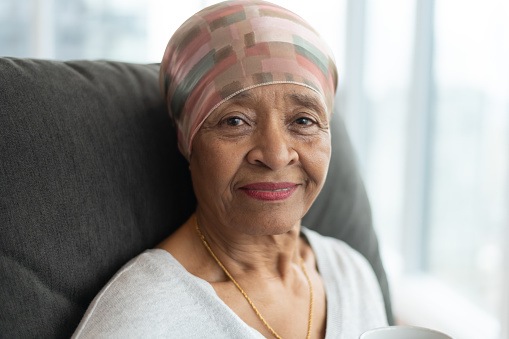
A new study examined whether any pre-diagnostic factors may impact the significantly increased mortality rate for black women with endometrial cancer compared to white women.
“Racial disparity in endometrial cancer survival rates is substantial and has increased during the past decade. Endometrial cancer is the most common gynecologic cancer and is diagnosed in 1 in 37 women in the United States. Black women with endometrial cancer have a 90% higher 5-year mortality risk compared with white women, with a 5-year mortality rate of 39% among black women compared with 20% among white women. This higher mortality rate is associated in part with disparities in cancer stage at diagnosis; only 53% of black women receive an early diagnosis,” explained the study authors.
To collect more information, the researchers performed semistructured interviews with 15 black endometrial cancer patients either in person or using a secure conferencing platform. They used iterative rounds of inductive coding, case summaries, and coanalysis with community input to conduct an exploratory and descriptive content analysis. The primary outcomes were beliefs, interpretations, and experiences of black women from symptom onset to diagnosis.
A total of 15 patients were included; ages ranged from 31 to 72 years. All patients lived in the U.S., specifically in the Puget Sound region of Washington (n=8), California (n=2), Alabama (n=1), Michigan (n=1), Louisiana (n=1), Georgia (n=1), and New York (n=1). During the study, 12 women were receiving adjuvant therapy, suggesting they were either part of a high-risk group or had advanced disease. At the time symptoms began, 13 patients were insured, and all 15 patients opted to receive cancer treatment. Knowledge gaps and silence were observed regarding menopause, misinterpretation of vaginal bleeding, and responses by first-line healthcare practitioners that did not align with the endometrial cancer risk for black women.
The study was published in JAMA Network Open.
“Black women with endometrial cancer described multiple experiences that were associated with care delay independent of health care access. Given the importance of cancer stage at diagnosis to overall cancer prognosis and the lack of interventions to address higher mortality rates among black women with endometrial cancer, these findings represent an important first step toward the development of evidenced-based interventions,” the researchers summarized.






 © 2025 Mashup Media, LLC, a Formedics Property. All Rights Reserved.
© 2025 Mashup Media, LLC, a Formedics Property. All Rights Reserved.